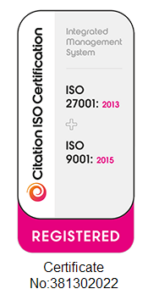It’s Not About the Platform: Flexibility and Skill are Key to Audience Engagement
“The art of life lies in a constant readjustment to our surroundings.” – Kakuzo Okakura
The choice of platforms and technologies open to organisations when running virtual meetings creates opportunities, but this choice can also bring additional complexities.
And these issues are even more pronounced in the public sector. That’s particularly true when working with the NHS, which has legacy issues around the use of devices, problems with different versions of Windows at various hospital trusts, and often restrictions on the platforms clinicians can access from work computers.
We encountered these issues recently when we ran a series of virtual product education meetings for NHS nurses on behalf of a large pharmaceutical client. The purpose of the meeting was to educate nurses on a new indication and treatment protocol for an existing hospital therapeutic.
As experience has taught us, collaboration, adaptation and, above all, being customer-focused result in solutions to any problem. Before the meeting, we reached out to some of the nurses to determine the platform most commonly used by the NHS.
This proved to be somewhat complicated but, ultimately, we found that most were able to use Microsoft Teams.
With some adjustments, plenty of support, and commitment to the needs of the audience, we were able to manage work-arounds for the nurses registered for the meetings.
During a series of meetings held over 2 days, I was constantly problem-solving in real-time, offering suggestions through messaging to those who couldn’t see slides or couldn’t hear the presentations, making sure everyone who had registered was accounted for and keeping track of who was on each session.
Regardless of the purpose of the session, when running meetings with an audience that may be unfamiliar with a technology platform, a customer-focused audience engagement expert can harness the experience by guiding participants through technology issues, helping them become comfortable with the platform and making the experience more enjoyable for everyone.
It’s important to remember when putting together virtual meetings that the audience may not be familiar with the technology. Nurses, for example, may have immense experience with ICU technologies but are unlikely to have spent much time engaging with the advanced features on a meeting platform such as Teams.
A huge attraction
What has been particularly rewarding when working with audiences made up of busy medical professionals such as nurses, is just how much interest virtual sessions can garner if time is spent guiding and preparing them. In fact, virtual meetings can attract a far bigger audience than physical events.
Often, pharmaceutical companies will organise a series of local meetings, perhaps in 4 locations, and invite healthcare professionals to attend to learn about changes to a product, new uses, new indications, and so on. The costs of putting on such an event can be considerable from both a human resource and cost perspective.
Furthermore, because of changing work priorities or the need to attend a healthcare emergency, there is no guarantee that many healthcare professionals – or even any – will show up. However, for this recent series of meetings, because we offered a choice of times over 2 days, more than 250 nurses attended, with several often sharing a computer to watch.
Successful virtual meetings such as these require preparation – managing the registration process through an event-specific platform, doing follow-up, networking back to the client, carrying out rehearsals, and organising the set-up. During the session itself, we are constantly keeping track of everyone attending, taking a complete roll call, and problem-solving in real time.
Another gratifying outcome from these meetings was the success enjoyed by the sponsor team. Greater than expected attendance, questions asked and answered, and feedback in real-time from the nurses commending them on a session well-run and noting that it had been a good use of their time. They even had colleagues from other parts of the company dropping into the sessions to observe and congratulate their colleagues on running such high-quality sessions.
These types of educational meetings have enormous potential in the virtual space for sponsor companies and the delegates attending.
The secret to their success lies in the preparation, flexibility and skill set of the meeting facilitators. At the end of the day, it’s the needs of the customer and the audience that matters. It’s about finding the common denominator for the audience and adapting to what works best for them in terms of the platform, solutions, set-up and strategy.
Leslie Robertson is the Founder of Open Audience, an audience engagement consultancy that specialises in making life sciences meetings more engaging with more positive, successful outcomes – whether in-person or in the virtual space. The Open Audience team helps to strategise and prepare pre- and post-meeting as well as providing real-time support and guidance during the meeting. Open Audience also offers customisable, multilingual engagement platforms that include interactive polling, surveys, and ideas exchange.

